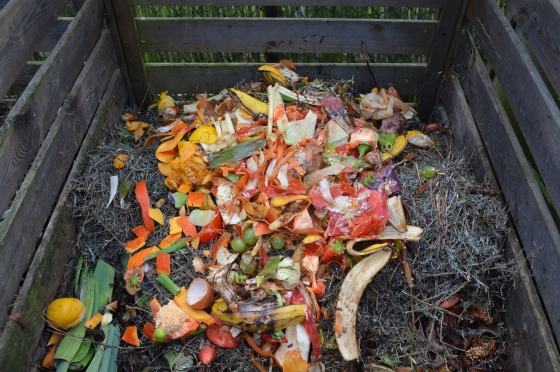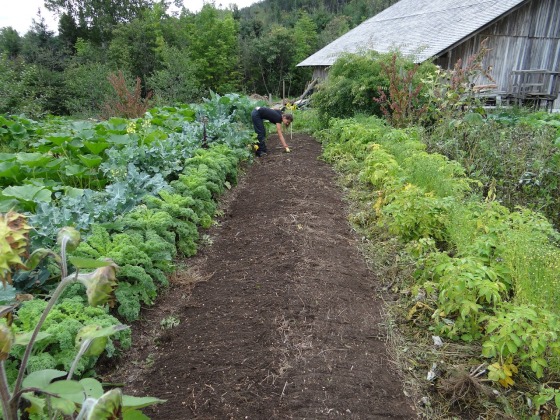 | peterboroughmastergardeners Jan 1 | by Emma Murphy, Master Gardener As this year ends, I'm offering a few New Year's resolutions for gardeners for 2024. If you want more of a challenge, the Chicago Botanic Garden offers 50. Add Native Plants To Your Garden - We're all seeing the effects of climate change on our gardens.
- Native plants adapt more readily to stressful and changing weather patterns, such as prolonged droughts or winter cold snaps, than hybrids and non-natives often seen in our nurseries.
- Native plants help sustain beneficial insects and bird populations because they attract native pollinators and birds that might not be drawn to non-natives.
- Create less work for you, as native plants tend to be lower maintenance than non-native ones.
- The Native Conservancy of Canada offers some suggestions to get you started, or consult with your local Master Gardener group or Horticultural Society.
 Bloodroot, Sanguinaria canadensis Start A Compost Bin - Composting helps keep waste out of landfill by collecting and processing organics into material that can be used to create nutrient-rich compost used to feed and nourish soil.
- Canadian Living offers a simple outline, as shared by Ed Begley Jr.
- Or more here from the Thames Region Ecological Association, including troubleshooting issues.
 Compost bin Grow More Of Your Own Food - The pandemic has highlighted how our agricultural systems are vulnerable to global shocks. Issues with supply chains, migrant workers, transport, trade and border closures have resulted in some foods being in short supply or prices going up (while quality goes down).
- Insects do all the hard work, and all pollinators benefit.
- Gardening provides benefits for your wallet, your nutrition, and reduces your environmental footprint. By growing your own food (either from seeds or small plants), your food is automatically more sustainable simply because you are doing it onsite or in a community garden. If you control the 'inputs' and do it well, you can save a lot of money.
- Ultimately there is nothing more rewarding than planting and maintaining your own vegetable garden and harvesting (and sharing) your results. And we all know how much better homegrown produce tastes versus conventional produce at the grocery store. If you have too much produce, then you can just share the love with others!
- Royal City Nursery in Guelph offers 8 Reasons to Start Growing Your Own Food from Seed
 Creating a vegetable garden Continuous Learning - Do what you love but keep on top of what's trending in garden design to see if anything sparks your interest.
- Keep track of what's working and what's not by documenting your garden happenings in a journal.
- Expand your garden library and treat yourself to a new gardening book.
- There are so many amazing (and free) garden webinars available now - learn from the experts.
- Some of my favourite bloggers – The Impatient Gardener (in Wisconsin, similar climate to us), The Empress of Dirt (Ontario), Niki Jabbour (Halifax), The Laidback Gardener (Montreal), and Garden Myths (Robert Pavlis in Guelph, Ontario).
 Online learning is a great opportunity Reduce Your Use Of Plastic - Plastic is a major component in the garden, from plastic plant pots and seed trays to watering cans, and compost bins. Most plastic gardening equipment will end up in landfills, where plastic pots alone can take up to 500 years to decompose.
- There are a few easy swaps you can make in going plastic-free: Many of us want to use less plastic in the garden, from plant labels to watering cans, tools, plant pots and the sheeting used to suppress weeds. Buying (and therefore using) less plastic will not only reduce your plastic footprint but also sends a message to manufacturers that gardeners want alternatives to plastic (especially single-use plastic).
- Try to find biodegradable pots that made from natural materials such as coir, bamboo, wood chips, or seaweed (or commit to using your plastic pots year after year).
- If you use plastic string, make the swap for a natural jute or hemp, and protect your fruits and vegetables with metal mesh instead of plastic netting – it lasts for years.
 Find alternatives to plastic pots, or commit to using (and reusing them) for many years Happy gardening dreams until we can get out into our gardens again…. | | | |  | You can also reply to this email to leave a comment. | | | | |